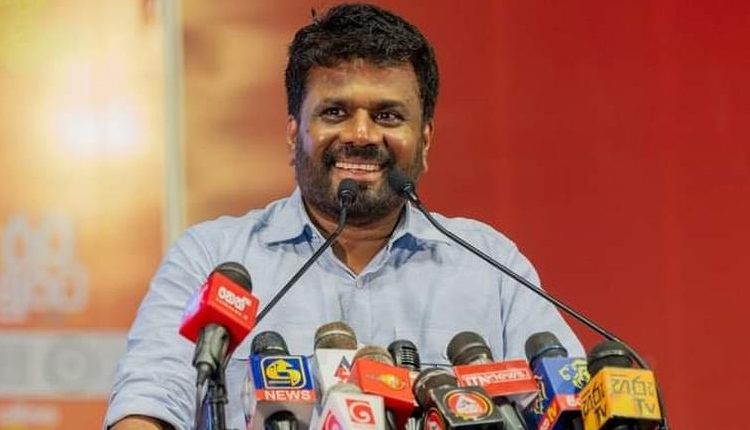Colombo: Anura Dissanayake has emerged victorious in the Sri Lankan presidential election, becoming the country’s 10th President. His win raises questions about the future of India-Sri Lanka relations, particularly given his party, the Janata Vimukthi Peramuna (JVP), is known for its anti-India stance and pro-China sentiments.
Dissanayake’s leadership comes at a time when India is already grappling with diplomatic challenges in the region, particularly following the recent political shifts in Bangladesh and the Maldives. His party’s historical opposition to India could heighten concerns about regional security for New Delhi.
Joining the JVP in 1987, Dissanayake has been critical of the India-Sri Lanka agreement signed in 1987, which has positioned him as an opponent of Indian influence in Sri Lanka. However, since becoming party leader in 2014, he has focused on anti-corruption efforts and has voiced plans to reconsider several foreign projects, including those initiated by the Adani Group and various Chinese enterprises in Sri Lanka.
Interestingly, during his election campaign, Dissanayake stated that he would ensure Sri Lanka’s air, land, and sea would not be used against India, indicating a potential shift towards a more cooperative relationship. His response to Prime Minister Modi’s congratulatory message further highlighted his commitment to strengthening ties between the two nations, suggesting that both countries could work together for mutual benefits.
Dissanayake’s diplomatic overtures towards India are not entirely new; his earlier visit to India, where he met with External Affairs Minister S. Jaishankar and National Security Advisor Ajit Doval, hinted at a possible thaw in relations. After the meetings, he praised India for its role during Sri Lanka’s economic crisis in 2022, during which India provided over $4.5 billion in economic and humanitarian aid.
Prime Minister Modi has emphasised the strategic importance of Sri Lanka in India’s “Neighborhood First” policy, expressing hope for cooperative efforts that could benefit both nations. Following Dissanayake’s victory, Indian High Commissioner to Sri Lanka Santosh Jha promptly congratulated him, signalling India’s intention to maintain a positive dialogue.
As Dissanayake takes office, the question remains: how will he navigate the complexities of Sri Lanka’s relationship with India? Given the JVP’s historical stance, the future of India-Sri Lanka relations may depend significantly on Dissanayake’s policies and willingness to engage with India constructively in the coming months.



Comments are closed.